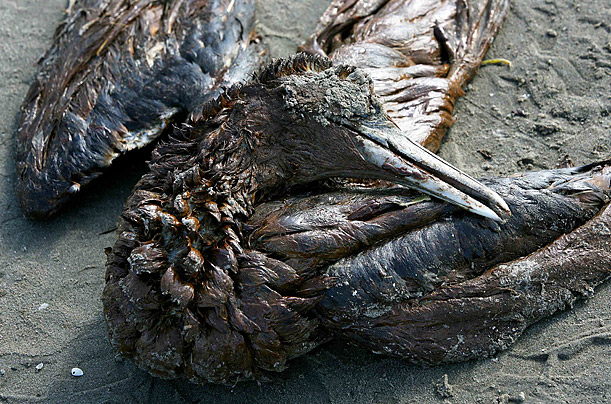I spent Memorial Day weekend on the Gulf Coast. Not in NoLa with my colleagues staking out Thad Allen’s new solo briefings, but along Florida’s southern coast where my parents live. I was surprised to see the beaches more packed than I’d ever seen them. All the hotels in town were sold out, my parent’s told me, because of travelers diverted from Louisiana, Mississippi and Texas beaches. In the short-term, Florida’s beaches are not yet threatened by the Deepwater Horizon spill but if the leak is not stemmed until August, there’s no telling what damage could be wrought.
Every spring one can always tell how bad the hurricane season is going to be by how warm the water is off Florida’s Gulf beaches, which sit on a shallow 100-mile shelf. In 2005 the water was in the 90’s when Katrina hit. Warmer water acts like an accelerant thrown on raging flames: it makes the difference between a Category One hurricane and a Category Four monster. The water is already in the 80’s, indicating that this year is going to be bad.
And, indeed, as today launches the 2010 hurricane season forecasters are already predicting the worst year for hurricanes since 2005 – the most active season in recorded history, which gave us not only Katrina but Rita and Wilma. Scientists expect up to 23 named storms. (Though, they only came up with 21 names: Alex – Bonnie – Colin – Danielle – Earl – Fiona – Gaston – Hermine – Igor – Julia – Karl – Lisa – Matthew – Nicole – Otto – Paula – Richard – Shary – Tomas – Virginie – Walter.)
Adding a hurricane into the mix will have a blender effect that could splatter the oil not only across Florida and Alabama but move it into the Caribbean and up the Eastern seaboard. The effects are potentially devastating for fragile ecosystems like the Everglades. I went kayaking in the 10,000 islands this past weekend, where the Glades meets the Gulf, and our guide said they live in terror of the oil.
And the Gulf isn’t the only vulnerable spot to hurricanes at the moment: more than a million people are still living in tents in Haiti.
What could this mean? Worst case scenarios are loss of life, loss of wildlife, loss of industries from fishing to tourism. This is already the worst oil spill in our nation’s history. But it has the potential, especially if the leak persists through August and the volume of oil grows exponentially, of being so much worse. There’s never been a hurricane season in recorded history where a storm missed the Gulf altogether.


